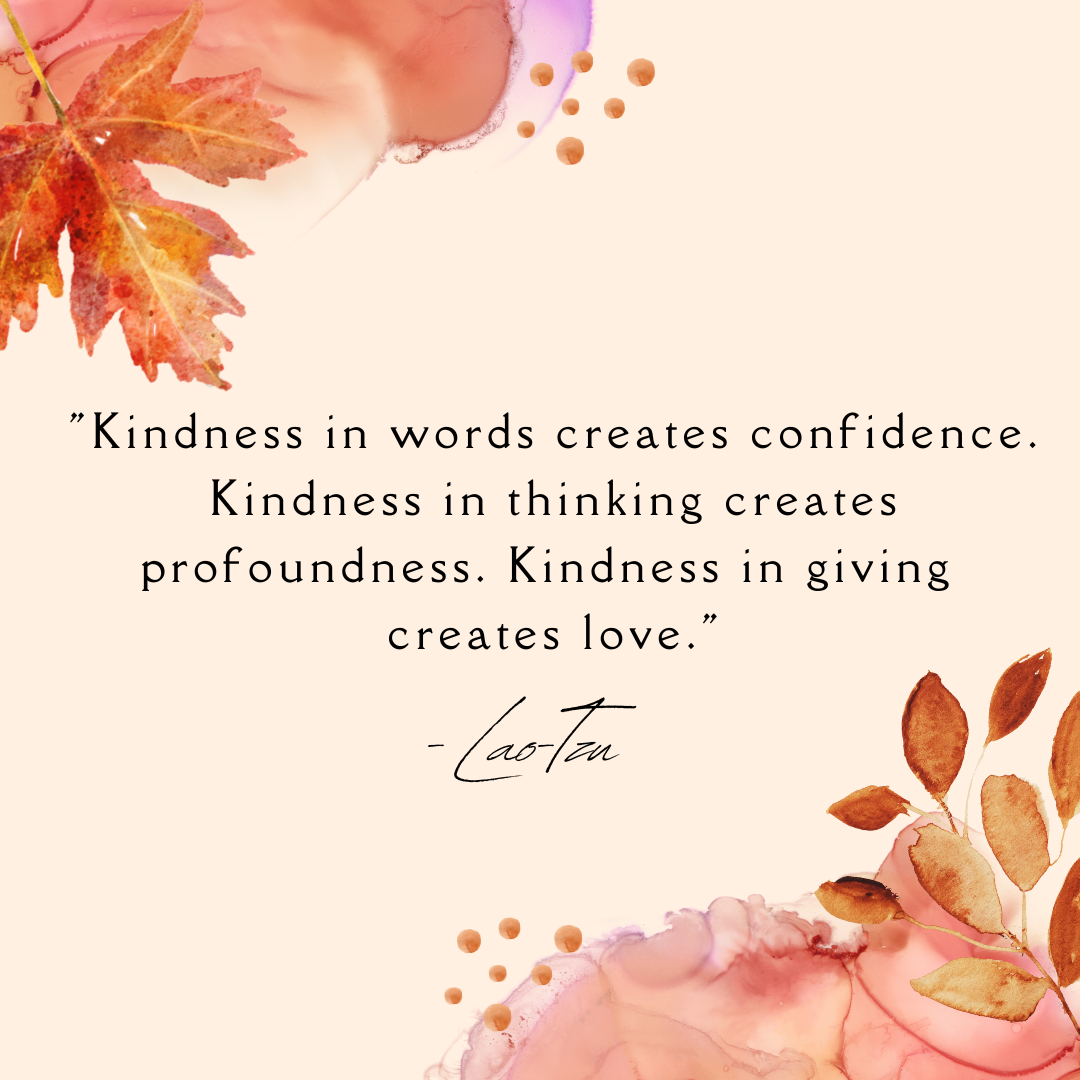How to create a kindness movement

How can we influence others to be kind? This is the question I’ll be reflecting on in this post.
In the last couple of posts, I’ve highlighted the importance of kindness, as well as how to be kind to people who are unkind. The next step is encouraging others to be kind too. As powerful as it is for us to take daily steps to establish our own kindness practice, the real change comes when we do this collectively, and create a Kindness Movement.
A good example is the best teacher. The best place to start when we want to influence others to be kind is with us. Sometimes, it can be challenging to be kind, especially when we meet unkind people. But as we discussed in the last episode, being kind to unkind people, and showing them how great kindness feels is a powerful action you can take towards breaking the cycle of unkindness. Hopefully your act of kindness will inspire them to pay it forward and in turn, be kind to others.
Don’t assume everyone knows how to be kind. We learn how to be kind through experiences of watching other people being kind, and also when we are the recipients of acts of kindness. It is also important we teach children how to be kind. Take time to demonstrate ways children can be kind to their friends, siblings and other family members. Look for opportunities to teach children kindness when they are upset because someone has said or done something mean to them or someone else. Talk with them about things they could say or do in these tricky situations. Ask questions that encourage them to come up with kind solutions.
When you walk the talk and demonstrate kindness in your workplace, in front of your kids, friends, and even total strangers, this creates a positive vibe within your surrounding environment. It is harder to be unkind to someone who is kind.
In addition to setting a positive example, you can also inspire kindness by simply treating others as you’d like to be treated. This can apply to anyone within your world: your family, work colleagues, or people you encounter throughout your day. With every word you say, or action you take, ask: am I being kind?
For example, you’re rushing to get out the door in the morning and one of your children is taking an eternity to put on their shoes. Instead of shouting at them to “hurry up!” (guilty!), say “Do you need some help with your shoes?” Or perhaps you need some information from a work colleague. Rather than simply firing off a blunt email, start by asking how their day or week is going, or praise them for the good job they did on a previous piece of work, if you haven’t had the chance to tell them yet. Unexpected praise after the event will make someone’s day, and hopefully encourage them to continue working to a high standard.
One of the parenting strategies I came across years ago was called “catch them being good”. This strategy encouraged parents to recognise and focus on the positive behaviour their children demonstrated. Whenever you caught your child doing something good, you acknowledged and encouraged them by saying something like, “I love how nicely you’re sharing with your brother – it’s great to see you both taking turns with the ball”. The theory is that you promote the positive behaviour, rather than focusing on the negative behaviour, and what you don’t want them to do. It’s kind of like setting an affirmation of what you want, rather than what you don’t want!
This same strategy also applies to adults. We LOVE being caught doing something good, especially when we think no one is watching! Cheer on and encourage others you catch being kind throughout your everyday life: at home, at work, or in your community. Start with “I really love how you…”. Even better – don’t just encourage the person doing the kind thing, praise them in front of other people: tell their boss, or leave positive feedback where possible.
There are so many wonderful stories and examples of kindness in our world – past and present. Despite the focus on negative stories in the media and online, I believe we all have a responsibility to share stories of kind acts and the positive impact they make in the lives of others with friends, family, colleagues and even complete strangers.
Be a source of inspiration and talk about examples of kindness whenever you can. Take this a step further and support kind content in the media, in books, and online. Cheer on people championing kindness. Whenever you encounter kind content, leave positive comments, write a letter of gratitude to an author whose book has had a positive impact on your life. When we applaud the positive, and ignore the negative we encourage content creators to create more of what we want. We can influence what appears in the media and online by simply choosing what to give our attention to.
Finally, the last (and my personal favourite way) we can influence other people to be kind is with our words. Never underestimate the power of saying something kind. This could be through showing gratitude with a simple ‘thank you’, paying someone a compliment, praising someone for a job well done, or simply telling someone we love them.
Here are some actionable questions you I’ll leave you to reflect on. I encourage you to write your answers to these questions in your journal or in your Morning Pages to further explore your how you can influence others to be kind:
- Who are the people in your life you can most easily influence to be kind? Your family, friends, work colleagues, clients, customers, or complete strangers?
- What benefits would arise from influencing these people to be kind?
- What or who most influences you to be kind?
- What is one thing you can do today to influence someone to be kind?
I’ll leave you with this quote from Lao-Tzu: “Kindness in words creates confidence. Kindness in thinking creates profoundness. Kindness in giving creates love.”
